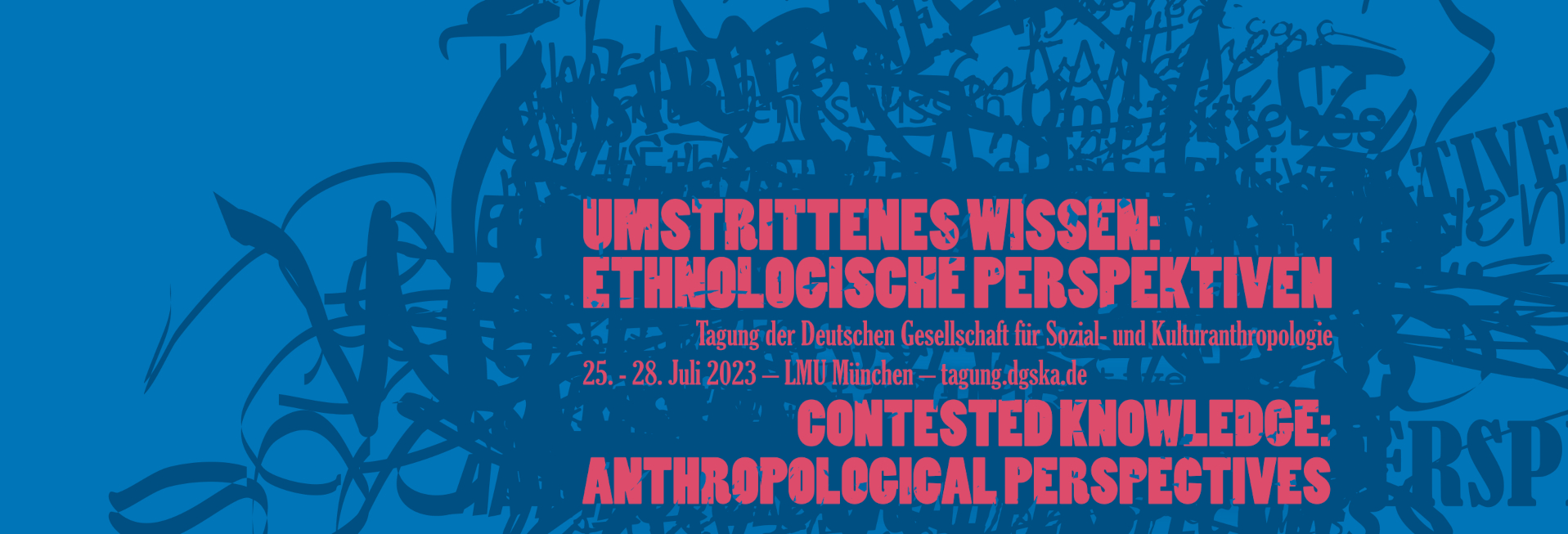
Conference theme
Contested Knowledge: Anthropological Perspectives
Knowledge generated through research is currently contested to an extent unprecedented since the beginning of modernity – and with it, the definition of science and its position in society. On the one hand, professional expertise continues to be invoked and used as a source of legitimacy for socio-political and individual decisions. On the other hand, such expertise is rejected as biased or questioned and criticized by counter-positions that are not always empirically grounded. Right-wing populist actors capitalize on structural changes in media cultures to fuel a general skepticism towards science, for example, by equating facts with falsifications, lies, and distortions. In the face of regressive retrenchments of knowledge, how should anthropologists confront the challenge of making transparent and defend the methodological status of evidence in the sense of time-bound horizons of validity?
Mediated cultures of contestation around knowledge, however, have also yielded movements like #BlackLivesMatter, #MeToo and #CiteBlackAuthors that challenge hegemonic knowledge systems in privileged institutional spaces of the Global North and point to existing racisms. These movements have once again drawn critical attention to knowledge making as socio-culturally situated and conditioned by inequality and power imbalances. Such movements have prompted anthropology to analyze controversial forms of its knowledge generation, i.e. how knowledge is produced, stabilized and legitimized by which actors and institutions in a situation of growing global inequality. How do multiple epistemologies and ontologies interact? What are the implications of calls for the decolonization of knowledge and university institutions for anthropological knowledge practices? How does anthropology deal with the political dimension of these research questions? What models of decolonial, participatory, activist and collaborative research exist in the co-production of knowledge and its representation? What are their limits? How do we reimagine and realize solidarities? How do the ongoing contestations prompt a reflection on one’s own privileges as anthropological researchers as well as the privileges of those who criticize them? How are these processes reflected in the institutions and practices of the discipline (e.g., division of labor, research alliances, campaigns such as #ich bin Hanna, and the politics of citation)?
While reflecting on its own disciplinary practices and institutions, anthropology is also uniquely positioned to analyze the current upheavals around knowledge and related mobilizations, for example around identity, gender, class and culture. An anthropological analysis of increasingly contested knowledge processes in the broader society raises questions about the extent to which academic voices endowed with special discursive power and media visibility are viable for analyzing global inequalities and asymmetries. In short, who can speak about whom and how? Whether and how can others be spoken “about” or even “for”? With regard to political contestations, questions around ways to engage politically charged theoretical concepts (identity, belonging, gender, “race,” difference, inequality, culture, etc.) arise continuously. When does the self-aware use of language turns into self-censorhsip, and what are the implications? What does it mean when islands of discourse form and harden, across whose boundaries communication and consensus-building on the validity of bodies of knowledge becomes increasingly difficult?
We would like to discuss these questions at the DGSKA conference 2023 in Munich, especially with regard to the interactions between anthropology and societal contestations of knowledge.


